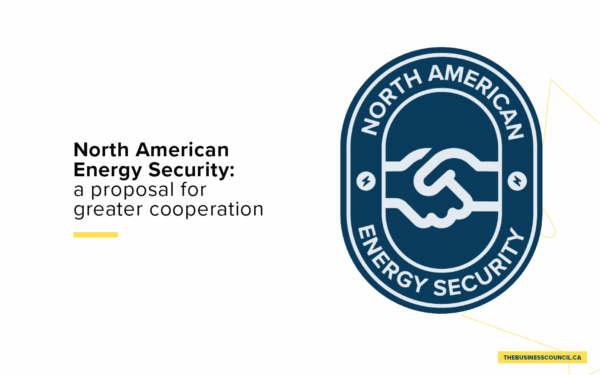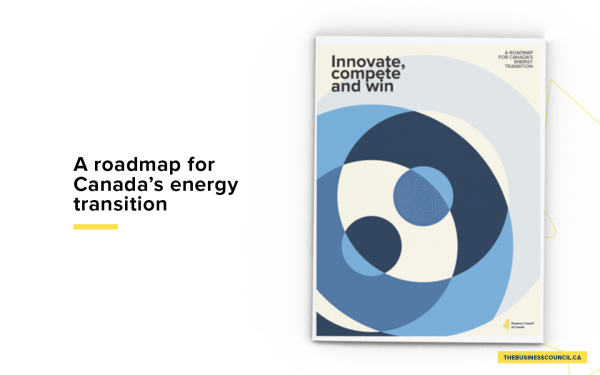Towards a Sustainable and Competitive Future
“Moving governments, corporations and citizens in the direction of sustainable development will be a massive undertaking. It is not possible to foresee precisely the shape of that undertaking from our vantage point. It will require commitment, both personal and institutional, to stay on the path as well as a capacity to respond to new challenges and new information.
While we cannot solve all environmental problems today, we can make a start with the highest priority items and devote our resources to them. We also must change our focus from one of reacting to problems to one that anticipates and prevents environmental problems from arising. We must continue to research into problems and solutions, and monitor our progress. We must adopt innovative strategies and techniques and fashion flexible policies and institutions – ready to adapt in the light of new scientific information, new problems and technological opportunities.
Sustainable development is not, after all, a static state or an end point, but rather a process of change. Fortunately, there are many reasons to believe that changes are beginning to happen, that we are seeing the necessary transformation of attitudes, institutions and policies.”
The Path Forward
Towards a Sustainable and Competitive Future
INTRODUCTION
The Cold War is over, and attention world-wide is now focused on the advantages of economic development, markets, competitiveness, trade, and globalization. In the wake of this economic revolution, the greatest challenge to Canadians and to citizens throughout the world is the attainment of economic progress that is sustainable.
Industry has a leading role to play in meeting this challenge. A continuing flow of wealth creation by industry is necessary to power the shift to more sustainable forms of development worldwide and to widen the economic and social base of developing countries so they can meet their rapidly growing needs. The private sector will generate and deploy the vast majority of all new investment required for these and other purposes over the next decade. How that investment is deployed will determine whether future development trends are sustainable or not.
The world’s economy and the earth’s ecology are now totally interlocked: to ignore one system today is to jeopardize the other. This is the new reality of sustainable development, first articulated by the World Commission on Environment and Development (the “Brundtland Commission”). It recognizes that continued economic and social development worldwide depends on a healthy environment. And, equally, it recognizes that we need a strong economic base – and its contribution of financial resources, infrastructure, and innovative capacity (both in Canada and internationally) – to continue to foster measures which protect our environment – and sustain our economy.
Sustainable development will require fundamental changes in the way we design, produce, and consume goods and services. But it also will necessitate changes in private and public sector decision-making. A shift to more sustainable forms of development necessitates, above all, an integration of environmental and economic objectives.
To achieve this integration will require the following:
- A commitment on the part of all sectors of society to implement the concept of sustainable development, and to change their policies, products and consumption patterns to support this transition;
- Workable partnerships to foster consensus, understanding and support for the necessary objectives, targets, institutional and policy changes, and the time scales which will be required;
- An exemplary role, in their respective spheres, by government leaders and chief executives, to foster and motivate the necessary changes;
- A dynamic and innovative business sector, efficient in the use of human, financial, and natural capital, and guided by appropriate market forces; and,
- Supportive public policies to stimulate trade and investment in less developed regions of the world, and to help break the vicious cycle of poverty and environmental degradation.
SUSTAINABLE DEVELOPMENT AND THE ENTERPRISE
What does the sustainable development challenge represent for the business community and the individual enterprise? We believe that business is one of the most effective vehicles for instituting and managing change, and, as noted by the Brundtland Commission, sustainable development is fundamentally a process of change. In the past few years, we have seen evidence that some leading industries are moving faster than their governments to apply the concept of sustainable development. The question before them is no longer whether they can reconcile environment with the bottom line. That debate is over. The question now is how best to do it.
These changes have come about as a result of a shift in the dominant paradigms that have guided industrial development to date. A new economy has begun to emerge marked by people relying more heavily on information and intelligence, and producing more goods, more services, more jobs and more income while using less and cleaner energy, materials and resources for every unit of production. This emerging economy is more efficient and potentially more sustainable. For these corporations which have recognized this transformation, protecting and enhancing the environment has become not just a cost of doing business but a potent source of competitive advantage.
In this shift, the concept of sustainable development emerges as something related to but very different from that of environmental protection. This difference is fundamental. In essence, environmental protection focuses on the downstream end of the development cycle, on the effects of development, and on ways and means to ameliorate those effects. Sustainable development, on the other hand, embraces the entire development cycle. It is concerned with the form of development itself, with product design, production processes and marketing strategies. Its measures are efficiency, competitiveness, and macroeconomic and macro-environmental performance. Sustainable development seeks to ensure that environment and development are mutually supportive at the front-end of the cycle when societal goals and policies are being set, not at the tail-end after society and the economy has already incurred the damage costs of unsustainable development.
For the corporation, this will require leadership at the chief executive level and the adoption of a business-wide policy on sustainable development, including goals, objectives, performance targets for continuous improvement and monitoring systems, with a corresponding reward and reporting structure. Such a policy should be:
- Outward-looking and future-oriented, incorporating lessons learned from other jurisdictions;
- Supported by strong employee training and motivation programs;
- Based on a strong commitment to R&D, recognizing the business opportunities in developing cleaner products, process technologies and services;
- Focused on life-cycle management at every stage of the enterprise’s activity;
- Designed to facilitate and support a full assessment of the sustainability of the enterprise’s existing and proposed activities; and
- Designed to facilitate the transfer of environmentally beneficial technologies throughout the business sector and internationally.
All businesses should present a sustainable development policy and periodic statement of achievement to investors, stakeholders, governments, and the public at large. This can form a credible basis for a proactive role in the public debate on policies to promote sustainable forms of development; and for working with suppliers and customers to assist them to complement and reinforce the enterprise’s sustainable development policy.
BRINGING TO BEAR THE FORCES OF THE MARKETPLACE
In pursuing greater environmental protection, a critical strategy will be the effective use of market instruments. Governments, in consultation with other stakeholders, must set overall objectives for environmentally quality. But they should also establish a framework within which economic instruments can improve the efficiency by which we achieve given objectives, and can motivate both producers and consumers towards less environmentally harmful activities.
The price of goods and services should more accurately reflect their full cost, including the environmental cost, in accordance with the “Polluter Pays Principle”. Since “getting the price right” can involve difficult issues of valuation, we should adopt a transitional approach, starting with moderate charges and making appropriate adjustments as we gain knowledge and experience. Charges for use of the environment must be equitable and focus on all sources of pollution, and should be designed to act as an incentive to change behaviour. In addition, a system of tradeable emission permits has the potential to stimulate innovation and to more efficiently allocate the costs of environmental improvements.
When it comes to encouraging sustainable development, the market is the most important instrument available. Too many present government interventions distort the market and drive development that is unsustainable, notably, certain subsidies for agriculture, energy and transportation. It is vital that they be reformed and that a level playing field be established at both ends of the development cycle.
A SUPPORTIVE PUBLIC POLICY FRAMEWORK
A key determinant in the progress towards sustainable development will be government policies, both domestically and internationally, which encourage the pursuit of more sustainable forms of development. Important steps in this respect are:
- Reform of the aggregate economic performance measures embodied in our national accounts, in order to recognize natural resources as capital and measure changes in the value and stocks of resources;
- Environmental standards which are scientifically sound and performance-based;
- Measures to improve our knowledge of environmental issues and to enhance our science and technological base, as well as to advance the public’s understanding of sustainable development;
- Measures to encourage industry to develop environmentally beneficial products, processes and services, and to facilitate their dissemination to small and medium-sized enterprises and to developing countries;
- Further progress in the current round of GATT negotiations, to ensure that developing countries have better trade access to developed economies in order to enhance their prospects for economic growth and environmental protection;
- Agreement at an international level on mechanisms to prevent the use of environmental measures as disguised means of trade protectionism.
THE SPECIAL CHALLENGE FOR THE DEVELOPING WORLD
During the 1980s, the situation in many developing countries changed dramatically for the worse, not just economically, but also ecologically. Deteriorating terms of trade, including unstable commodity prices, growing protectionism in developed market economies, population growth, and stagnating flows of aid, all combined to increase their economic, social, and ecological problems. Poverty, as the Brundtland Commission found, is both a cause and an effect of environmental degradation and economic decline. This fact translates into an overwhelming political imperative to foster rapid growth in developing countries.
The industrialized world, and, in particular, business in the industrialized world, must take the lead in developing and fostering more sustainable forms of development, more open trading patterns, and ensuring access by developing countries to efficient and environmentally sound technologies. Firms in developed countries can help to accomplish this through a combination of foreign direct investment, licensing arrangements, partnerships and joint ventures. They can also assist in the adaptation of appropriate local technologies, as well as education and training to take advantage of new technologies.
THE PATH FORWARD
Moving governments, corporations and citizens in the direction of sustainable development will be a massive undertaking. It is not possible to foresee precisely the shape of that undertaking from our current vantage point. It will require commitment, both personal and institutional, to stay on the path as well as a capacity to respond to new challenges and new information.
While we cannot solve all environmental problems today, we can make a start with the highest priority items and devote our resources to them. We also must change our focus from one of reacting to problems to one that anticipates and prevents environmental problems from arising. We must adopt innovative strategies and techniques, and fashion flexible policies and institutions – ready to adapt in the light of new scientific information, new problems and technological opportunities.
Sustainable development is not, after all, a static state or an end point, but rather a process of change. Fortunately, there are many reasons to believe that changes are beginning to happen, that we are seeing the necessary transformation of attitudes, institutions and policies. In order to sustain the momentum which has been building, we will all need meaningful signs of progress.
Hopefully, our progress will be measured in new indicators of sustainability:
- The establishment of formal mechanisms to integrate the environment and economy;
- More accurate measurement of the costs and benefits of resource use and environmental conservation;
- A reduction in the resource content of economic growth;
- A growing body of environmental education and skills;
- Policies and programs increasingly built upon co-operation and consensus;
- A complementary mix of regulatory measures, incentives, technological improvements, and voluntary actions;
- Policies, institutions, companies and operations which are more adaptable, and responsive to new information and new situations;
- Increased flows of technology, particularly to lesser developed countries; and,
- A slower rate of population growth.
All of these will be encouraging signs that we are progressing towards a sustainable and competitive future. Ultimately, however, the primary responsibility will rest with the business community to demonstrate this progress.
If leaving a healthy environment and a prosperous economy to our children and future generations is the key test of sustainable development, then, in a rapidly changing global economic order, the pursuit of responsible growth and competitive enterprises will be the primary means to do so.
BUSINESS COUNCIL ON NATIONAL ISSUES
The Business Council on National Issues is the senior voice of Canadian business leaders on public policy issues in Canada and abroad. Composed of the chief executives of 150 leading Canadian companies, the Council carries out an active program of research, consultation, and advocacy in four principal areas: the national economy and competitiveness; foreign affairs and the global economy; the environment and sustainable development; and, political governance. The member companies of the Business Council are active in every major sector of the Canadian economy. They employ over 1.5 million Canadians, manage over $1 trillion in assets, and have an annual turnover of approximately $390 billion.
The Business Council formed its Task Force on Sustainable Development in 1989, with the goal of providing strategic business leadership on the national and international agenda for sustainable development. The Council believes Canadian business has a responsibility to work with others in society to promote and develop environmentally sound economic policies and practices. The Council was active in consultations leading up to the development of the federal government’s Green Plan, and will be taking a lead role on behalf of Canadian business with respect to the 1992 United Nations Conference on Environment and Development (UNCED).
Towards a Sustainable and Competitive Future was prepared under the supervision of the Business Council Task Force on Sustainable Development, and benefited from the contributions of members of the Council’s Policy Committee, as well as Council members from across Canada.












